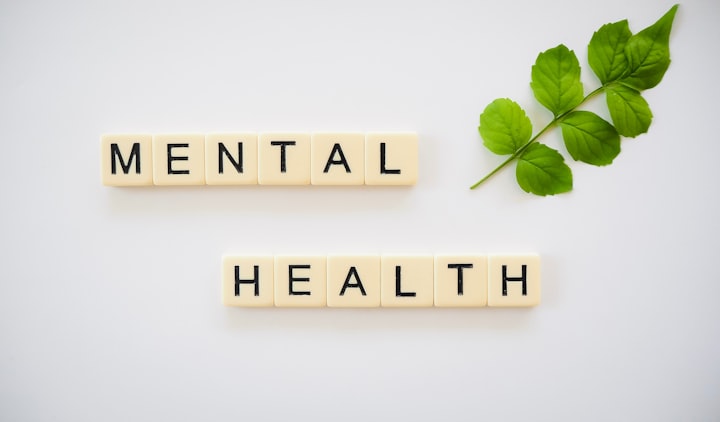What Is It Like To Be Mentally Ill?
Terror. Shame. Beauty.

To be mentally ill is to be physically ill.
The organ that houses your soul fails you. The most complex biological structure in the animal kingdom succumbs to rampant dysfunction. It is a part of the human body that can never be transplanted, never truly repaired, never understood adequately. Your personality and perceptions fluctuate with its chemical changes. Crippling imbalances in neurotransmitters and life-altering abnormalities in structure indicate disease, but are referred to as mere issues- a vague, nondescript, near-demeaning phrase. The behavior associated with brain tumors and diabetic crises is understood to be a result of a natural disease process, but “mental health issues” scare those lucky enough to enjoy sanity out of any sympathy. A sacred few try to offer compassion, they try nobly, yet they cower in fear as you step close to them and shift their weight awkwardly in your presence. You’re frightening. You’re weird. It’d be more comfortable for them if you’d go away.

It is to be fundamentally misunderstood and to misunderstand fundamentally.
You are vilified by those you need the most. You ask for love with fits of rage and pounding fists. You ask for understanding with obscene words, straining your vocal cords, exhausting your lungs, begging to be heard. Police officers understand that a German Shepherd acts violently only in response to specific cues it has learned through conditioning, yet assume that those suffering brain dysfunction are categorically dangerous. To be mentally ill is to be called unpredictable, to be labeled a liability, by those who do not care to understand the impact of environmental triggers. Psychiatrists who’ve spent a career studying the brain perceive the altered behavior produced by a medication they prescribed as a personality flaw. You are thought to lack morality when it is your highest priority. You’re told you lack empathy when you care with fervor.

It is to be tortured and tormented by the mundane. You know logically that the man in the cereal aisle is not following you, yet you feel a panic that leaves you drenched in sweat and shaking in fear by the time you check out. You pace for hours before mustering the courage to make a phone call. A sideways glance from a stranger leads to weeks of anxiety. You understand the improbability of a government agency placing cameras in your shower, yet you feel so exposed that do you do not bathe, so you stink, with matted hair and grimy skin, and your dignity seeps away with each new tangle.

You feel cockroaches crawling over you, but you know they’re not real because you can’t brush them off. Yet they remain. They crawl over you at night, so you wash the sheets at 2:00 AM, then lie down to rest. They return. You know they’re not real, but you feel them, so it is real.
To be mentally ill is to yearn for respite. You question reality when alone, and it’s exhausting; you fear intentions in others’ company, and it’s terrifying, so you avoid people. You are suffocated when alone, and miserably lonely in a crowd. You fear the society you long to join.

It is to be robbed of the most human of experiences.
To be mentally ill is to choose between sex and sanity when offered a poorly researched chemical that promises neither. You can’t share your body with the person you hold dear, yet you love them from the bottom of your heart, but you can’t love them. You cannot run your hands through their hair, you cannot press your fingertips against their flesh, because you feel nothing. The smooth and graceful caresses of tender affection are erased by erratic jerking movements as medication prescribed after mere minutes of professional consideration permanently alters your body. Gentle kisses lose their charm as your lips smack and your tongue wags involuntarily in response to a chemical assault on your nervous system. The side effects of psychiatric medication outlast its presence in the body and turn a once noble being into a circus freak. You choose between an accurate understanding of your environment and a chance at a relationship and a family. The likelihood of securing either one in less than a decade of treatment is similar to that of winning the lottery.
It is to feel pangs of guilt at every improvement in your condition.
How can you rejoice in your sanity if, at each step forward, you become more aware of how sick you have been? You patch holes in the wall with tears streaming, you bandage your bleeding wounds with confusion, you apologize with a deep regret no one believes anymore.
You realize with horror that you were crazy as you spoke your wedding vows, as you held your newborn, as you chose a career.
Every moment of clarity instills aching shame in your heart. It hurts to get better.

It is to suffer in secret and in shame.
It is to be laughed into silence. You learn through agonizing experience that if you reveal your illness, your disease, you receive ridicule instead of sympathy. You enter a crowded room and know from the immediately hushed atmosphere and averted gazes that they were gossiping about you. Men and women of faith smirk at you with a cross around their neck. They worship the world’s most famous therapist but cringe as you mention your own psychologist.
But it is to exist free of societal constraints.
There’s a silver lining. It is liberating to be called crazy your whole life. The world calls you a freak again and again, and you realize you are blessed with a liberty of expression. You’re going to be laughed at anyway, so you might as well speak your mind. You become viscerally observant and unrelentingly honest. Most of society is limited by the expectations of others. But you’ve been judged so much that you don’t care. You tell your truth, and often find that it is a universal truth that has remained unspoken for the sake of propriety.
To be mentally ill is to find beauty in anguish.
You rejoice at a simple human interaction. You treasure the few who find you worthy of casual conversation. Those who see past your confused outbursts become heroes to you through actions as basic as making eye contact.

Precious allies offer their presence as you suffer, and it is a priceless gift. They respond to irrational actions with an invitation to enjoy a slice of pizza at a picnic table, and suddenly cheese and sauce on bread becomes a more powerful cure than anything concocted in a laboratory, because no chemical can make you feel seen, and heard, and valued.

You become a keen observer of human nature, of patterns, of possibilities. Through improvements in ability made possible by compassion, the mentally ill transfer those observations to paper, to canvas, to a myriad of other media, leaving a legacy of singular insight to humanity. A specific illogical behavior is impossible for a sane person to understand, yet the works of those who display those behaviors have impacted the world through masterpieces in drama, literature, art, and science. A man with schizophrenia won the Nobel Prize in Economics. The paintings of a person sick enough to cut off his ear hang in the Louvre.
A different perception of the world can be invaluable rather than inaccurate. The concept of sanity is not completely objective. Mental illness may never be cured, because the human mind will never be thoroughly understood. Maybe one day, though, this illness will be called brain disease, or at least perceived as such, and those who suffer through it will be accepted as part of society.
About the Creator
Samantha Marin
I’m lucky to have an opportunity to share my writing here and enjoy reading others’ work. I’m into outdoor sports, first responders, and mental health.







Comments
There are no comments for this story
Be the first to respond and start the conversation.